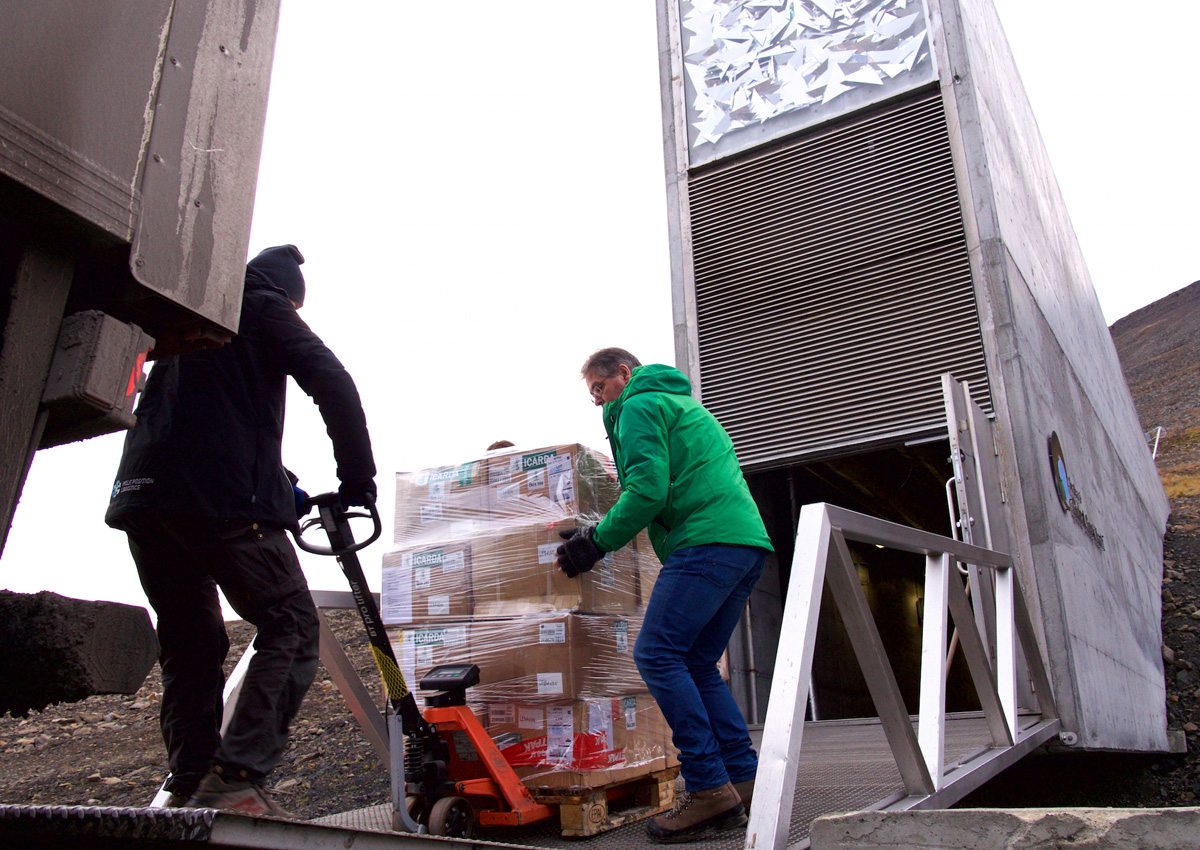
International Rescue Brings Syria's Seed Collection Back to Svalbard
November 18, 2020| |
When the Svalbard Global Seed Vault opened in 2008, the International Center for Agricultural Research in the Dry Areas (ICARDA) then based at Tel Hadia, just outside Aleppo, Syria, was among the first genebanks to deposit safety duplicates of its seeds. The ICARDA genebank had the largest collection of crop diversity from the Fertile Crescent, including barley, durum wheat, faba bean, chickpea, and lentil. Little did the Seed Vault's creators realize that the first withdrawal of seeds would come so soon.
When war broke out in Syria in 2011, the future of one of the world's most important seed collections was put at risk. To save the historic collection, ICARDA cranked up the work, preparing and shipping 14,363 accessions to the Seed Vault between 2012 and 2014. Around 83% of all the accessions in the ICARDA genebank before the war were deposited in the Seed Vault, with an additional 13,939 accessions sent to the national genebank in Turkey.
Lebanon and Morocco helped and hosted the collection and the seeds that the ICARDA staff painstakingly backed up so in the event of a calamity could be regenerated for conservation and made available for use. In 2015, ICARDA staff returned to the Svalbard Seed Vault to make the first withdrawal of seeds and began the process of re-establishing the collection. Each year since 2016, more than 30,000 samples have been regenerated for use of researchers and breeders. After years of hard work in both Lebanon and Morocco, ICARDA is now on its way to reconstructing its entire collection and continues to supply seeds to requestors.
For more details, read the article in the Crop Trust.
| |
You might also like:
- Syrian War Prompts First Withdrawal of Seeds from Svalbard Global Seed Vault
- Svalbard Global Seed Vault Starts a Century-long Seed Experiment
- Svalbard Global Seed Vault Receives Big Seed Deposit from 35 Genebanks
Biotech Updates is a weekly newsletter of ISAAA, a not-for-profit organization. It is distributed for free to over 22,000 subscribers worldwide to inform them about the key developments in biosciences, especially in biotechnology. Your support will help us in our mission to feed the world with knowledge. You can help by donating as little as $10.
-
See more articles:
-
News from Around the World
- International Rescue Brings Syria's Seed Collection Back to Svalbard
- OFAB-Kenya Celebrates Media's Contribution to Promoting Agri-biotech
- Extra Gene Pairs and Biological Clock Control Important Plant Functions
- Texas AgriLife Makes Breakthrough in Fight Against Plant Diseases
- Honduran Farmers Attest to GM Maize Benefits
- Bansal Leads Initiative to Evaluate ~22,000 Wheat Accessions
- Australian OGTR Invites Public Comments on GM Clover Field Trial
- Pakistan's Agriculture Industry Remains Open for Biotech Opportunities
- Virtual Tech Forum to Tackle Environmental Impact of GM Crops
-
Research Highlights
- More Clues on the Mystery of Fast-evolving Genes Found in ‘Junk DNA'
-
Plant
- Report Forecasts Healthy Growth for Gene Editing Market
-
Health
- Chemists Discover Structure of Key SARS-CoV-2 Protein
-
Read the latest: - Biotech Updates (April 17, 2024)
- Gene Editing Supplement (April 10, 2024)
- Gene Drive Supplement (February 22, 2023)
-
Subscribe to BU: - Share
- Tweet

